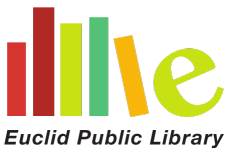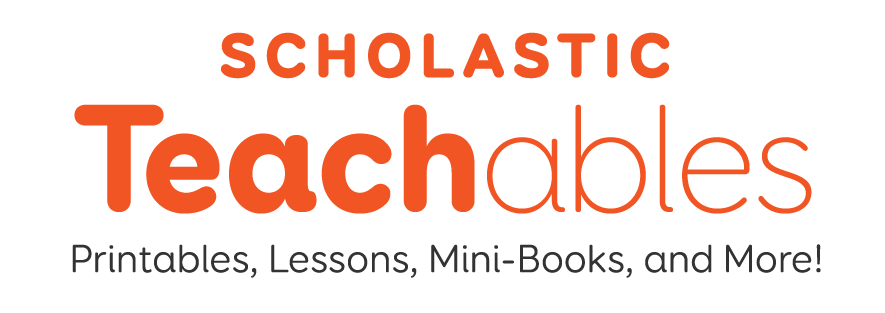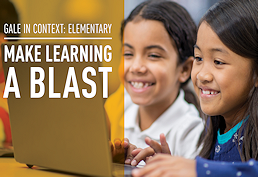Keeping your child's skills fresh!
Euclid Public Library has many resources to assist families with educating their children and to supplement classwork during this time.
Teachables can be accessed from home just by entering your library card number. This database offers an incredible selection of worksheets, learning activities and books for grades K-8 in the areas of English/Language Arts, Reading, Science, Social Studies and Math. Parents can print unlimited worksheets for their children to complete. Testing is right around the corner so Teachables is a great way to keep skills fresh and children engaged in continuing the learning process. Click on the image below to access Teachables today -- make sure you have your library card number handy!
Gale in Context: Elementary is an easy-to-use digital resource featuring age-appropriate, reliable, curriculum-related content covering a broad range of educational topics. The modern design and simple navigation make it easy for users to explore content and gain comfort with database searching. Click on the image below to access Gale in Context: Elementary today!
INFOhio is the Ohio PreK-12 Digital Library and is available to school aged kids throughout Ohio. Access dozens of free educational resources from the comfort of your home by entering your library card number. Click on the image below to access INFOhio today!
How to get your child a library card:
Your child may get his or her own library card as soon as they can write their first name. Parents or guardians need to fill out and sign the application for their child's card and show valid state identification. We think that getting a library card is so important that our Friends of the Euclid Public Library will provide your child with a special gift when they get their first library card!
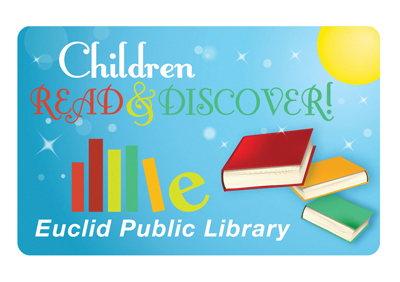
Sign up for the Ohio Governor's Imagination Library:
Through our partnership with Dolly Parton’s Imagination Library to put more books in the hands of Ohio’s children, the Ohio Governor's Imagination Library is working to ensure that every student enters kindergarten ready to succeed. Children up to their 5th birthday, will receive a FREE book by mail every month. Books are age and developmentally appropriate. Register by clicking the image below or stop by the Euclid Public Library children's desk to register your child. This benefit is available to ALL children who live in Ohio.
How to Raise a Reader:
Reacquaint yourself with reading: If you’ve let reading slide to the margins of your life, now is the time to bring it back. Make the space, and time, for books you read for yourself, and books you read with your child. If you want to raise a reader, be a reader.

Read out loud, every day, any book: You can read anything to a newborn: a cookbook, a dystopian novel, a parenting manual. The content doesn’t matter. What does matter is the sound of your voice, the cadence of the text and the words themselves. Research has shown that the number of words an infant is exposed to has a direct impact on language development and literacy. But here’s the catch: The language has to be live, in person and directed at the child. Turning on a television, or even an audiobook, doesn’t count. Sure, it’s good to get started reading aloud the children’s books that will be part of your child’s library. But don’t feel limited. Just be sure to enjoy yourself.
Mind your audience: Make eye contact, but don’t look for a particular reaction. It may seem like babies are not listening, but they are absorbing the experience. And the patterns, routines and attentive habits that are set now will last a lifetime.
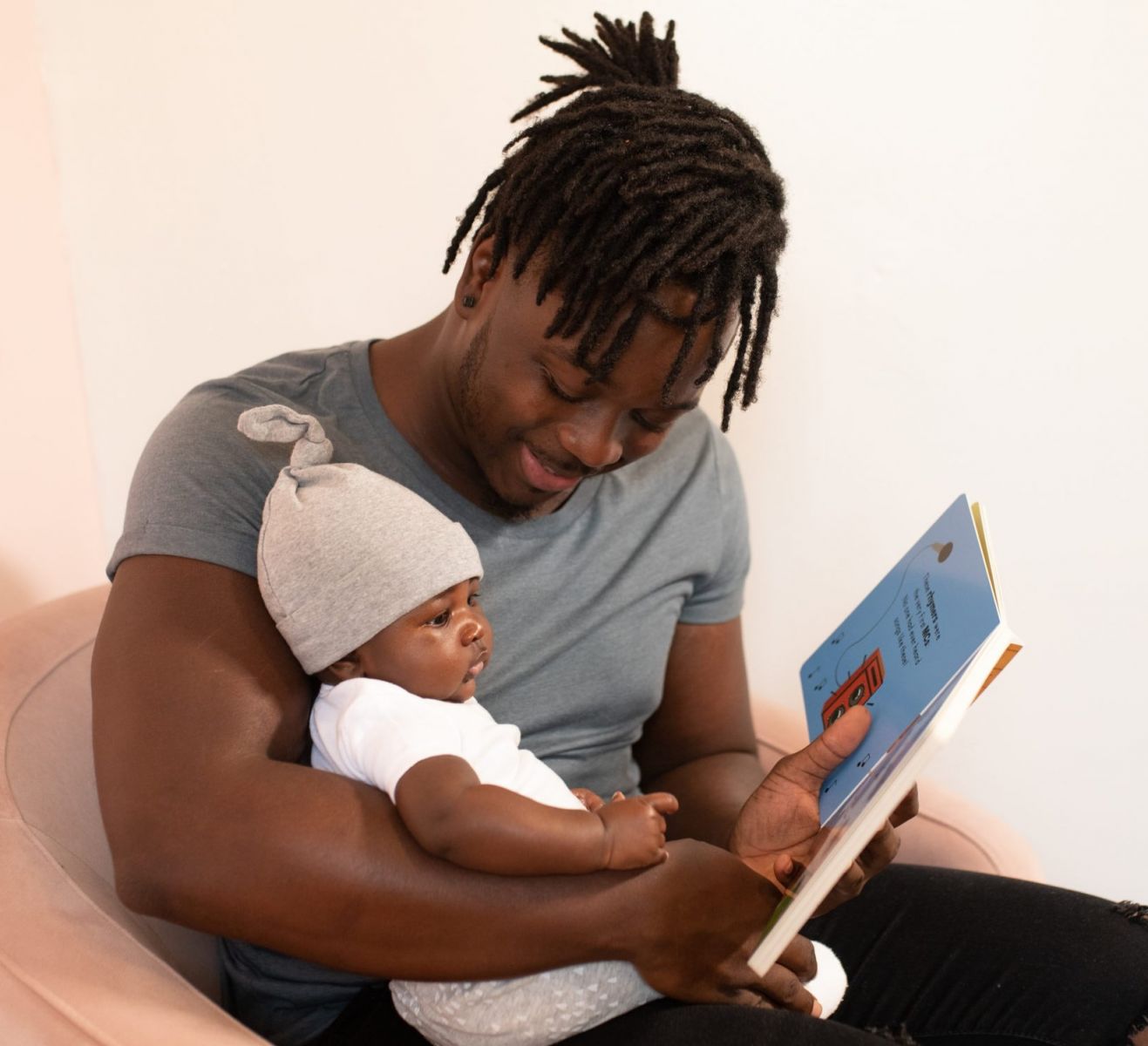
Get your baby talking: Babies may start making sounds in response to your reading. This is why many books for this age contain nonsense words or animal sounds — they’re easier to mimic. Try it: If your child make a noise, respond. It may make no sense to you, but it’s communication. There’s a straight line from this moment to your first parent-child book club.
Reading happens throughout the day: Nightly bedtime reading is a familiar routine for parents of toddlers — what better way to get your little ball of energy to relax before bed? Make sure the atmosphere is soothing and not rushed, and choose some of the many books that end, strategically, with a peaceful going-to-bed scene (though friskier books about sleep-avoiding children are fun, too). But read with your toddler during the day, as well. Offering to read books with toddlers is one of the best ways — some days, it can seem like the only way — to get them to slow down and focus. Sit close, and enjoy these moments of connection while it’s still light outside.

Respect your child's preferences: Your child is already surprising you with independent tastes and opinions. Just as your child doesn’t like your kale salad, he or she may not appreciate the exquisite black-and-white crosshatching of Robert McCloskey’s “Make Way for Ducklings” as much as you did as a child. You may not be all that excited about fairies, talking trucks, or comic books but your child might be. Encourage children to express what they like about their books, and find more books like those.
It's okay to interrupt: Don’t get so caught up in your own reading that you ignore your child’s comments and queries. Interruptions show that your child is engaged. Try it: If you find yourself saying, “Just let me finish this page,” stop and ask your toddler to repeat the question. If children don’t seem engaged by the words, ask what they see in the pictures. Point at things and invite them to explain or narrate the action.
Choose diverse books: All children need to see themselves reflected in the picture books around them. If your child is a member of a racial or ethnic minority, seek out books that feature children who look similar to yours — they are getting much easier to find. White children also benefit from books that show children with different skin tones and ethnicities. All children need to encounter books that present the variety of cultural traditions and family structures that coexist in our communities. Exposing children to diversity in books will prepare them for life in a diverse world.
Raise a Reader tips courtesy of the New York Times piece by Pamela Paula and Maria Russo "How to Raise a Reader" published June 21, 2017.
